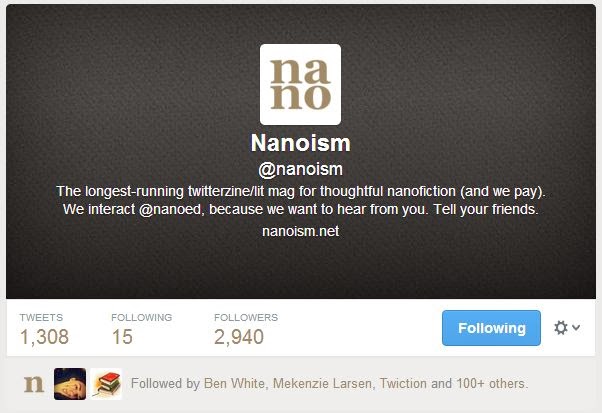Donna Tartt (Image courtesy Airship Daily)
Literary Talismans
Literature as we tend to conceive of it exists in the realm of the mind, represented by little markings that are easily
reproduced (the written word) and endlessly spread, whether on paper or electronically. But my goal in this series was always to
explore the physical roots, the paper on which the words were originally
carved.
I'm also exploring what an English professor of mine once called "literary talismans" - tangible objects left behind by creatives. She mentioned this at her surprise
that I was interested to see her signed copy of a book of Allen Ginsberg's
poetry. She showed it to me in her office one day - her name and his on a page
of arabesquing sunflowers all drawn by Ginsberg's hand.
Being so much rarer,
these literary talismans can be difficult to track down. I'd read Jack
Kerouac's On the Road when I was younger, but I didn't fully immerse myself
into the world of Kerouac until just after the original scroll finished its
tour of the United States - much to my disappointment, as I'd still love to see it in person.
The same thing just
happened to me with The Goldfinch. At the end of last year the world of arts
and letters was abuzz with Donna Tartt's most recent novel, but I only just got
around to reading it. The novel goes hand in hand with the ideas I had in
starting this series, since it explores themes related to the near immortality of
physical things such as paintings or antique furniture. The 775-page tome was
inspired by a 1654 painting by Carel Fabritius, a Dutch master who died young
in a gunpowder explosion, leaving behind only a handful of works. His painting,
"The Goldfinch" was serendipitously exhibited at the Frick Collection
in New York at the exact same time Donna Tartt's novel The Goldfinch was
released. It'd be great to see the painting that's so reverently described in
the novel:
"The painting,
the magic and aliveness of it, was like that odd airy moment of the snow
falling, greenish light and flakes whirling in the cameras, where you no longer
cared about the game, who won or lost, but just wanted to drink in that
speechless windswept moment. When I looked at the painting I felt the same
convergence on a single point: a flickering sun-struck instant that existed now
and forever."
And while it's
entirely possible I walked uncaringly past the Frick Collection while the
painting was there, "The Goldfinch" finished its exhibition in New
York at the beginning of the year, and after a brief stay in Italy, has
returned to its home at the Mauritshuis in The Hague, so unfortunately, I missed
it - for now.
"The Goldfinch" by Carel Fabritius
Donna Tartt's Writing
Process
On the topic of
interesting things you might unknowingly walk past in New York, Donna Tartt did most of her research and writing for The Goldfinch at the New York Public
Library on Fifth Avenue, in the Allen Room. She prefers to write by hand with plain ballpoint pens in large college-ruled, spiral-bound notebooks.
She likes her work to be portable and keeps notebooks to write in all the time. Some inspiration for the novel
actually began twenty years ago, based on notes she wrote in Amsterdam (She first saw "The Goldfinch" as a copy at Christie's in Amsterdam).
As she explained to
Omnivoracious,
she had stacks of different notebooks by the time she was late into the
composition of The Goldfinch:
"In the fall
when the school supplies are in the store, I'll tend to buy lots of them so I
can get just the kind I want: silly patterns and colors are, for me, an
important aide memoire, a mental filing system. When I was finishing Goldfinch,
I had a series of notebooks that had covers from Beatles albums, and when I was
looking for something, it was easier for me to think: 'Oh, I wrote that in the
"Hard Day's Night" notebook' or 'I wrote that in the "Sgt.
Pepper" notebook' rather than 'I wrote that in the blue notebook.'"
She has a color-coded process for her revisions. She uses red, blue, and then green pencil to make
the palimpsest easier to read and keep track of which revisions were written
when. She'll also staple index cards onto the notebook pages when
needed.
When the notebooks
are "too tangled-up to read," as Tartt likes to say, she types them up
and prints them out, but even here she uses a color-coded system to stay
organized. She mentions having a pink draft, a grey draft, and a blue draft of
The Goldfinch to easily know which stack of paper is the newest version.
"My French teacher, many years ago, told me this, and it actually
works," Tartt says. She takes about a decade per novel, so it seems ideal to keep everything
meticulously organized over that span of time.
We often think of
escapism as readers getting lost in books, but in these decade-long excursions,
Tartt finds escapism as a writer: "I don’t want to write about my own
life, I want to write about someone else’s, to live someone else’s life."
---Other Entries in
this Series---
The Physical Writing Process: James Joyce & Jorge Luis Borges – Writing with Eye Trouble
The Physical Writing Process: Franz Kafka - Quartered Onionskin Paper
The Physical Writing Process: Writing in the Bathtub - The Duality of Dalton Trumbo as Screenwriter and Novelist
The Physical Writing Process: Maxine Hong Kingston - From Drawings to Words Across a Multitude of Drafts
The Physical Writing Process: Franz Kafka - Quartered Onionskin Paper
The Physical Writing Process: Writing in the Bathtub - The Duality of Dalton Trumbo as Screenwriter and Novelist
The Physical Writing Process: Maxine Hong Kingston - From Drawings to Words Across a Multitude of Drafts






.jpg)





